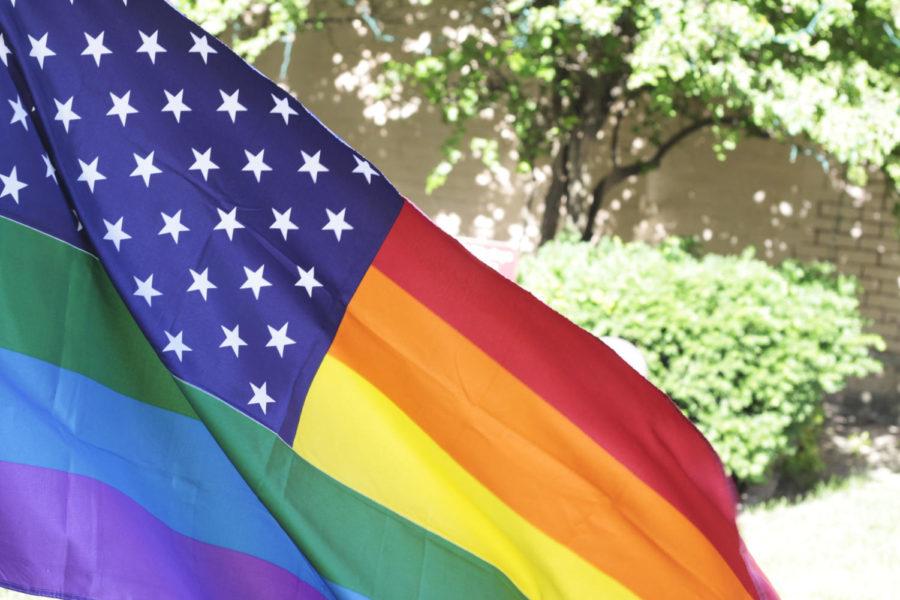Supreme court LGBTQIA+ employment cases remain undecided
DOMA Rally: Madeline Doyle/Iowa State Daily
The rainbow flag was flown in honor of the LGBT movement as the Defense of Marriage Act was overturned June 26, 2013, after the Supreme Court declared that it was unconstitutional.
October 16, 2019
On Oct. 8, the United States Supreme Court heard arguments over ongoing cases on whether the federal law that bars sex discrimination in employment applies to LGBTQIA+ employees.
This argument draws from Title VII of the 1964 Civil Rights Act, which prohibits employers from discriminating against employees on the basis of sex, color, national origin, race and religion. Some argue that sex encompasses sexual orientation and gender identity whereas others say that Title VII’s intent was for biological sex and nothing more.
“It’s obviously extremely important that this is being discussed and that this is finally coming to the attention of millions of Americans who are largely unaware that these protections don’t explicitly exist in 28 states across this country right now,” said Keenan Crow, director of policy and advocacy for One Iowa. “That said, in terms of how this pans out for Iowans, Iowa actually does have explicit protections put in place for employment.”
One Iowa is a non-profit that seeks to advance, empower and improve the lives of LGBTQIA+ Iowans statewide.
Crow said if the Supreme Court decides Title VII doesn’t cover sexual orientation/gender identity, it would be catastrophic because Title VII is the “only protections” the LGBTQIA+ community has. Crow said that Americans should be focusing on the Equality Act rather than just the Title VII issue.
“The solution to this is not the Supreme Court; it is Congress passing the Equality Act and making sure that all 50 states have affirmative protections,” Crow said.
The Equality Act is a bill that would add “sexual orientation” and “gender identity” as protected classes under federal civil rights law. The bill was introduced by Nancy Pelosi on March 13.
“I think that these court cases are an important step in protecting the rights and liberty of the LGBTQ community,” said Rajdeep Oberoi, political director for Iowa State’s College Democrats. “It’ll lead to a lot more people hiding who they are because they need to keep their job and can’t risk getting fired,” Oberoi said when discussing the effect the Supreme Court’s decision may have on workers.
When asked how the LGBTQIA+ community would feel if the decision ruled against them, Oberoi said, “I feel like they would think this is a huge step backwards because it is, whereas generally, over the last couple of decades, we’ve been progressing in terms of protecting their rights and acknowledging them [as] equal human beings because they are.”
The Supreme Court remains undecided and some perceive the focal points of the arguments to be pushing the issue toward Congress rather than solving it head-on.
“One of the more progressive judges even talked about how trans people make women uncomfortable in the bathroom,” said Trinity Dearborn, president of The Pride Alliance and the Asexual Aromantic Alliance, who was referring to Supreme Court Justice Sonia Sotomayor.
The comment made by Justice Sotomayor occurred during an early hearing of the case, where, according to the official transcript, the word bathroom was said almost 20 times during arguments for a case that had to do with work discrimination based on sexual orientation.
Dearborn said they think it’d be a step backward if the Supreme Court ruled in favor of “sex” not covering gender identity and sexual orientation and said how this could be an issue for cisgender people as well.
“Cis people that are still gender nonconforming could be swept up in this if they wear something different,” Dearborn said. “Even though they have dominant identities, their gender expression could put them at risk in situations too.”
















